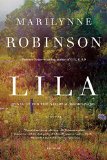Summary | Excerpt | Reading Guide | Reviews | Beyond the Book | Read-Alikes | Genres & Themes | Author Bio

This article relates to Lila
Throughout the novel, Lila, the protagonist suffers a deep ongoing shame resulting from early childhood abuse and neglect. Although it is never articulated in the story, there is a name for this response: Child Abandonment Syndrome.
In a 2010 article published in a blog, "The Many Faces of Addiction," for Psychology Today, Claudia Black, M.S.W., Ph. D., states that children who live without the psychological or physical protection they need, internalize incredible fear. Without the physical conditions necessary to thrive— appropriate supervision, the provision of nutrition and meals, and/or adequate clothing, housing, heat or shelter—a child experiences abandonment. According to Black, living with repeated abandonment experiences creates toxic shame arising from the painful message that the child (and the adult they become) is not important, that he or she is of no value. Black tells us that when children are not provided a safe environment, they grow up believing that the world is an unsafe place, that people are not to be trusted, and that they do not deserve positive attention and adequate care.
Children also experience abandonment when parents fail to provide the emotional conditions and environment necessary for healthy development. This can happen when a child fears rejection, feeling that it's necessary to hide a part of who he or she is, in order to be accepted. For the child, this means it's not okay to make a mistake; it's not okay to show feelings; it's not okay to have needs—that everyone else's needs appear to be more important than the child's; and it's not okay to have successes—accomplishments are not acknowledged, or are many times discounted. In an extreme case, a child who experiences physical and/or sexual abuse also experiences abandonment.
Black tells us that similar problems arise when children can't live up to parental expectations, which might be unrealistic and not age-appropriate; when they are held responsible for other people's behavior, when they are consistently blamed for the actions and feelings of their parents; and when a parent's disapproval of their child is aimed at the child's entire being or identity instead of a particular behavior, such as telling a child he is worthless when he does not do his homework or she is never going to be a good athlete because she missed the final catch of the game.
In an online article published in 2013, "Post-Traumatic Stress Disorder of Abandonment," author Susan Anderson states that "the intense emotional crisis of abandonment can create a trauma severe enough to leave an emotional imprint on individuals' psycho-biological functioning, affecting their future choices and responses to rejection, loss, or disconnection." People who have had a traumatic abandonment experience in childhood are likely to develop post-traumatic symptoms similar to post-traumatic stress disorder. Anxiety manifested as persuasive insecurity, diminished self-esteem and heightened vulnerability in social contexts are earmarks of this disorder. Interestingly, in her prologue to the book, To The End of June, a look at the American foster care system, author Cris Beam states that foster children are twice as likely as combat vets to develop PTSD.
Anderson says that the impact of such trauma can be addressed through a program of abandonment therapy techniques designed to help victims overcome the fallout caused by these damaging experiences.
Filed under Medicine, Science and Tech
![]() This "beyond the book article" relates to Lila. It originally ran in November 2014 and has been updated for the
October 2015 paperback edition.
Go to magazine.
This "beyond the book article" relates to Lila. It originally ran in November 2014 and has been updated for the
October 2015 paperback edition.
Go to magazine.
Your guide toexceptional books
BookBrowse seeks out and recommends the best in contemporary fiction and nonfiction—books that not only engage and entertain but also deepen our understanding of ourselves and the world around us.